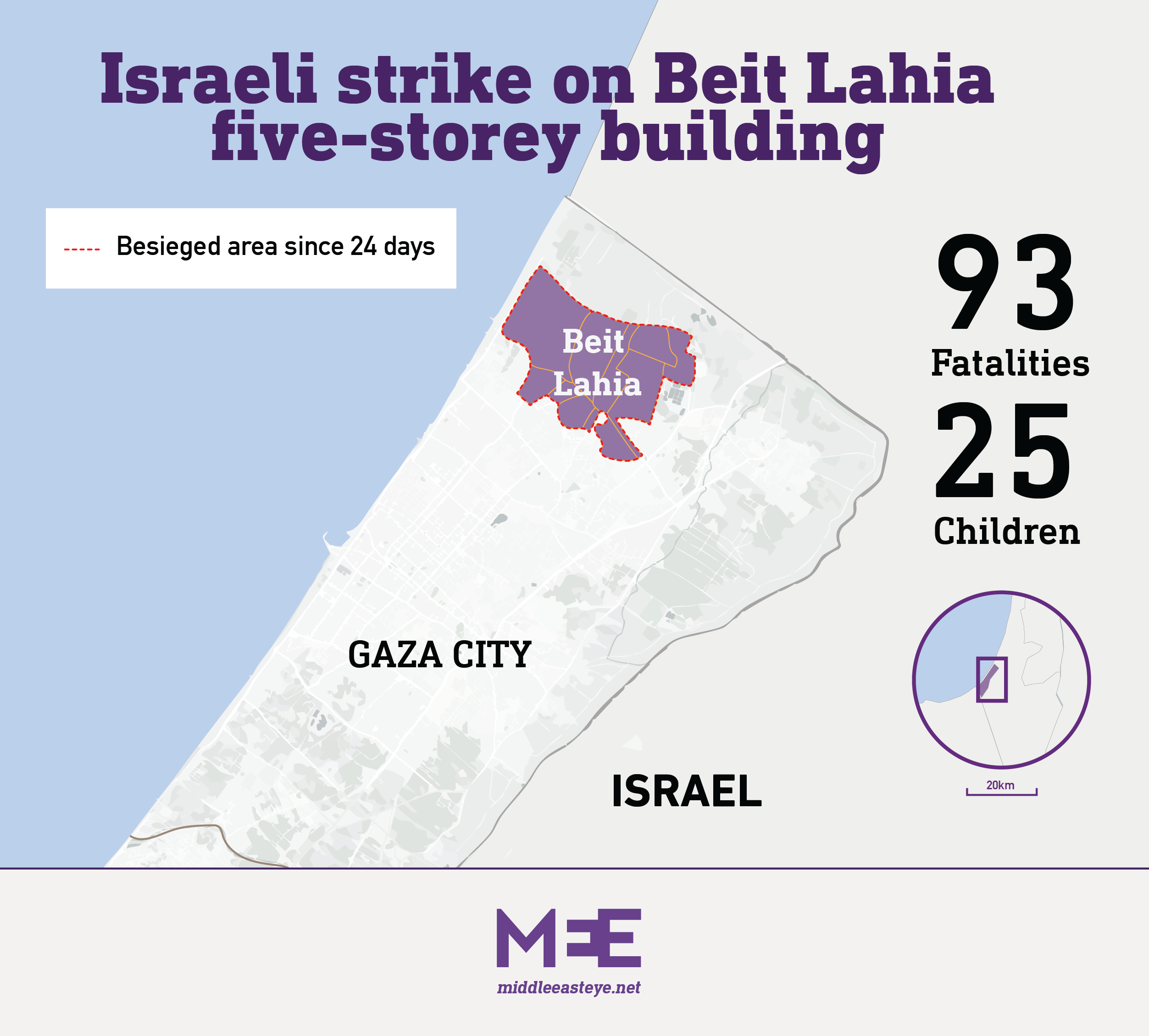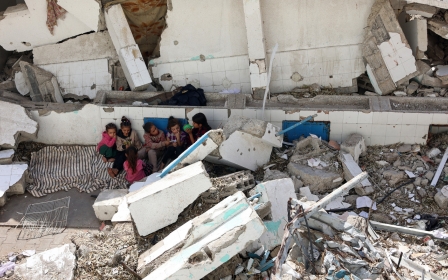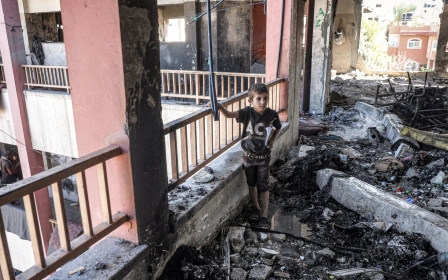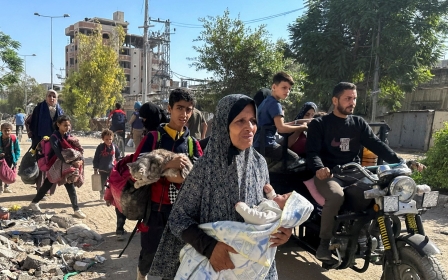War on Gaza: Israeli strike kills nearly 100 Palestinians sleeping in homes

Israeli forces have killed nearly 100 Palestinians, including 25 children, in an air raid on homes in north Gaza where displaced people were sheltering.
The bombing late on Monday targeted a five-storey building in Beit Lahia, a northern town that has been under a severe Israeli siege and ground offensive for 24 days.
At least 93 fatalities have been confirmed, including 25 children, according to the Gaza-based government media office. Forty more are missing.
The Palestinian health ministry reported 150 wounded.
Footage aired on Al Jazeera showed recovered bodies covered in blankets at the attack site. A woman was seen mourning next to victims, including several of her children and grandchildren.
New MEE newsletter: Jerusalem Dispatch
Sign up to get the latest insights and analysis on Israel-Palestine, alongside Turkey Unpacked and other MEE newsletters
“Who shall I cry over?” she asked. “My sons? My daughters? My grandchildren? My siblings? They’re all gone. No one is left for me.”
The targeted building belonged to the Abu Naser family, which had recently taken in displaced people expelled by Israeli troops from their homes in north Gaza.
Between 300 and 400 people were sleeping in the building at the time of the strike.
Local media reported that wounded people were dying due to the lack of functional hospitals in north Gaza, a result of the systematic destruction of health services by Israeli forces.
معظمهم من النساء والأطفال.. أكثر من 70 شهيدا وعشر.ات المفقودين في قصف الا.حتلا.ل لبناية سكنية تعود لعائلة ابو نصر في بيت لاهيا شمالي قطاع #غزة pic.twitter.com/QMLen3Hc43
— أنس الشريف Anas Al-Sharif (@AnasAlSharif0) October 29, 2024
“We cannot treat those wounded in the Beit Lahia massacre due to lack of resources,” Dr Hussam Abu Safia, director of Kamal Adwan hospital, told Al Jazeera.
'Most of those injured may die due to lack of resources'
- Hussam Abu Safia, Kamal Adwan hospital director
Kamal Adwan was the last operational hospital in north Gaza before Israeli forces raided it last week, detaining or expelling all medical staff except Abu Safia and another paediatrician.
Other hospitals in the area have ceased operations due to Israeli attacks and a blockade preventing fuel, food and medicine from entering.
Survivors seeking medical help for the wounded from the Beit Lahia attack were also bombed, according to Abu Safia.
“Most of those injured may die due to lack of resources,” the doctor said. “The world must act and not just watch the genocide in Gaza.”
Also on Tuesday, Israeli bombardment in Gaza City killed at least five Palestinian civilians, according to Wafa news agency. Israeli warplanes had launched two air raids on a busy market area in the Daraj neighbourhood east of Gaza City, killing five and wounding at least 20 others.
Two more Palestinians were killed by Israeli strikes on the Khirbet al-Adas area of Rafah city, in southern Gaza.
'Generals' Plan'
The Israeli military launched a new offensive in north Gaza on 5 October, which rights groups describe as part of a plan to ethnically cleanse the area of Palestinians.
This offensive followed the controversial “Generals' Plan,” proposed to the Israeli government, which aims to empty northern Gaza to establish a "closed military zone".
"Those who leave will receive food and water," stated Giora Eiland, a retired general spearheading the proposal.
According to the plan, anyone who stays would be labelled a Hamas operative and could be killed.
The UN agency for Palestinian refugees, Unrwa, estimates that about 400,000 people remain in northern Gaza, including Gaza City.
The besieged areas are under a debilitating blockade and media blackout, with Israeli forces accused of exacerbating starvation and malnutrition as part of the ethnic cleansing plan.
Since the war on Gaza began nearly 13 months ago, Israeli forces have killed more than 43,000 Palestinians and wounded over 100,000. More than 10,000 are missing and presumed dead under the rubble.
At least 17,000 children and nearly 12,000 women are among the deceased, according to the Gaza-based government media office.
Unifil troops wounded
In Lebanon, Austria said that eight of its troops belonging to UN peace-keeping forces in Lebanon (Unifil) were lightly wounded on Tuesday by a rocket strike on Camp Naqoura near the Israeli border.
Unifil said the rocket, which set a vehicle workshop ablaze, was fired from north of the camp, "likely by Hezbollah or an affiliated group". It said it had opened an investigation into the matter.
Meanwhile, Hezbollah named Naim Qassem as its new secretary-general, weeks after the killing of long-time chief Hassan Nasrallah.
Qassem, 71, has long been considered to be the group's "number two".
For decades, he served as one of the group's most senior spokespeople, conducting regular interviews with foreign media.
Unlike Nasrallah, who largely went into hiding after Israel's 2006 war with Lebanon, Qassem continued to make public appearances.
Israeli Defence Minister Yoav Gallant said that Qassem's appointment was "temporary".
"Temporary appointment. Not for long," he posted on X, accompanied by a picture of the new Hezbollah chief.
Middle East Eye delivers independent and unrivalled coverage and analysis of the Middle East, North Africa and beyond. To learn more about republishing this content and the associated fees, please fill out this form. More about MEE can be found here.






